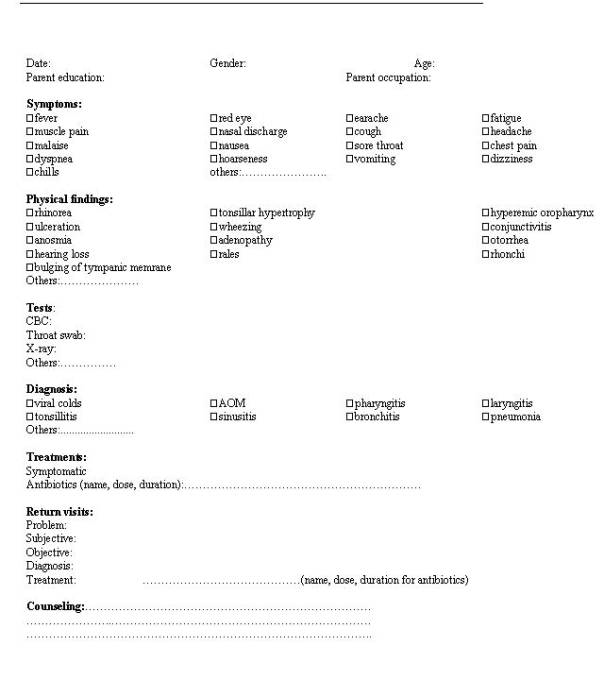|
Antibiotic expectation rates for fever, cough, and sore throat were
significantly lower in the study group than the control group (p <
0.05). Rates for nasal discharge, and diagnoses (bronchitis,
pharyngitis, otitis, and sinusitis) were also lower in the study group
but there was no statistical significance (p>0.05) (Figure 2).
Symptom-based and total
behavior scores were significantly higher in the study group (p <
0.01). There was no statistical difference between the two groups
regarding diagnosis-based behavior scores (p > 0.05) (Table 3).
Discussion:
Informing patients about the natural history of symptoms is an effective strategy for reducing re-consultations, benefiting the patient and the physician; it is likely to reduce antibiotic prescriptions and future patient consultation habits (9). We informed parents of children with ARIs about their illness and the treatment. We did it actually and actively; because we believe providing printed education materials is not as successful as one-on-one education. There are two important reasons affecting the use of antibiotics for ARIs: One is patient expectation for antibiotics to treat ARIs, and the other is physicians' preference to prescribe antibiotics when in doubt about the cause of an infection (10). Interventions should be done primarily to change patient expectations for antibiotics and physicians' prescribing behavior.
BACK
NEXT |
|
| Figure
1: Evaluation
tool |
 |
